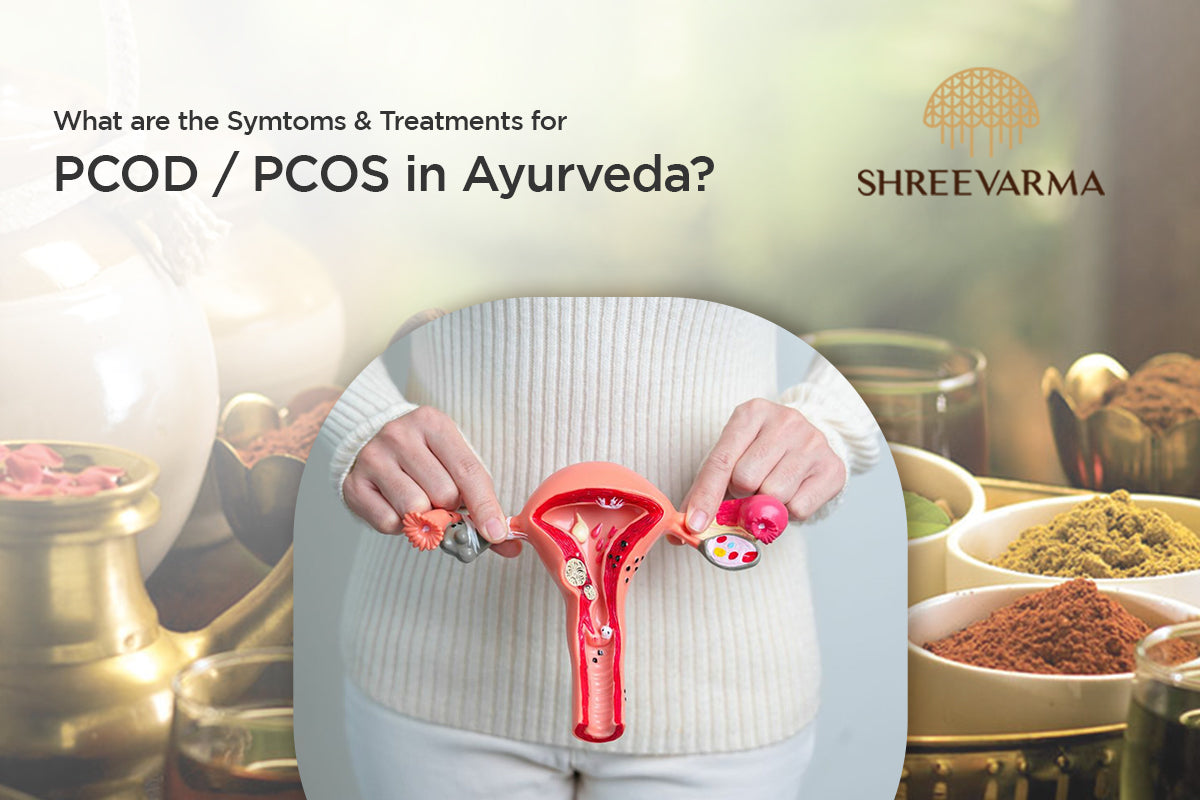Understanding PCOD/PCOS in Ayurveda
Some of the instantiations of PCOD, which is a hormonal disorder amongst women, include abnormal menstrual cycles, high levels of testosterone and polycystic ovaries. This condition which affects one in ten women worldwide can lead to numerous problems, including metabolic diseases, gravidity and indeed cerebral disturbances.
To control PCOS/ PCOS, people take over several medical practices, PCOD/ PCOS Treatment in Ayurveda has a notable approach by treating the root cause of the problem and working in harmony with the body.
PCOD/PCOS Symptoms
Different people may be suffering from PCOD symptoms in an entirely different manner. However, some typical signs and symptoms are as follows:
Menstrual Abnormalities:
The irregular menstrual cycle comes in women with PCOD, which is a consequence of disturbed hormonal patterns affecting the regular process of ovulation.
Infertility:
Irregular ovulation causes difficulty in conception.
Hormonal Imbalances:
Androgens (male hormones) have increased levels and cause some physical changes and symptoms as well like acne, hirsutism, and hair thinning.
Weight Gain:
Most individuals have had weight gain which is most commonly associated with metabolic disturbance, that is, insulin resistance.
Psychological Issues:
Sometimes PCODs can affect mental health. Fluctuation of hormones along with social pressure and personal habits can increase anxiety and depression.
Other Health Risks:
Increased Vulnerability to conditions like diabetes and heart issues.
Ayurvedic Perspective of PCOD/ PCOS
From the Ayurveda perspective, PCOD is a combination of imbalance in the Kapha and Vata dosha, which directly impacts the functioning of the reproductive system, leading to hormonal irregularity. The natural remedies for PCOD in ayurveda promote holistic mending through salutary changes, revision in life, remedies through herbal styles and remedial practices like Panchakarma.
Key Ayurvedic Principles for Treatment
Dietary Modifications:
Maintaining a proper diet with all grains, fruits, protein, and vegetables is essential. Avoid foods that are heavy in caffeine, processed food, and sugar to reduce the agitation of Kapha. To decrease Kapha agitation, it is also recommended to avoid foods
Herbal Remedies:
Shatavari Asparagus racemosus - It controls menstrual cycles. It improves the health condition of the ovaries.
Guduchi Tinospora cordifolia - They help control insulin resistance with anti-inflammatory properties.
Triphala - Digestive health and detoxification
Even medicines like ashwagandha and fennel help with hormonal balance
Lifestyle Changes:
Following a fixed daily routine, Dinacharya, with proper sleep, exercise, and ways of reducing stress, including yoga and meditation.
Panchakarma Therapies:
In addition to cleaning therapies, there are also oil massages, steam therapy, and medicated enemas, through which one gets detoxification and restores the doshic balance
Yoga and Pranayama
Some of the yoga asanas, similar to Bhujangasana and Supta Baddha Konasana, help stimulate reproductive health by adding blood inflow to the pelvic region.
Conclusion
Indeed if conventional drug has no proven remedy for PCOD/ PCOS, PCOD/ PCOS Treatment in Ayurveda offers a holistic approach that emphasizes reestablishing equilibrium inside the body through natural drugs and life variations.
At Sheevarma, recognized as the best Ayurvedic hospital for PCOD/PCOS, we focus on these Ayurvedic principles to help women reduce their symptoms and lead healthier lives. It is recommended that an experienced Ayurvedic practitioner at Sheevarma be consulted to receive personalized treatments tailored to each patient’s needs and circumstances.






